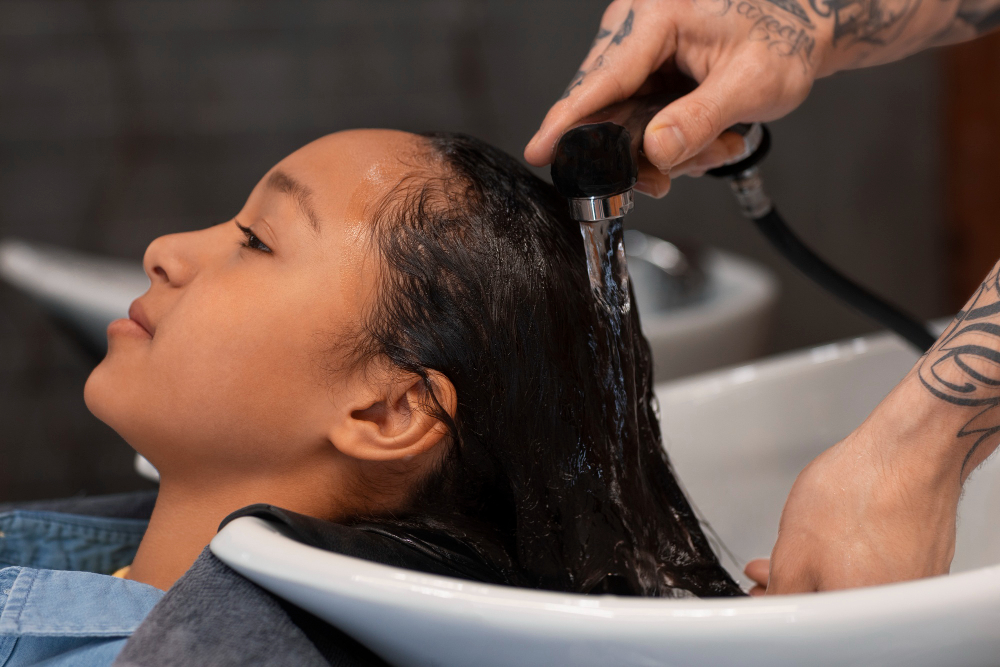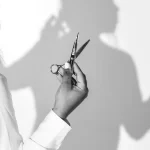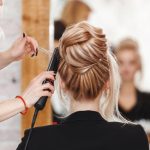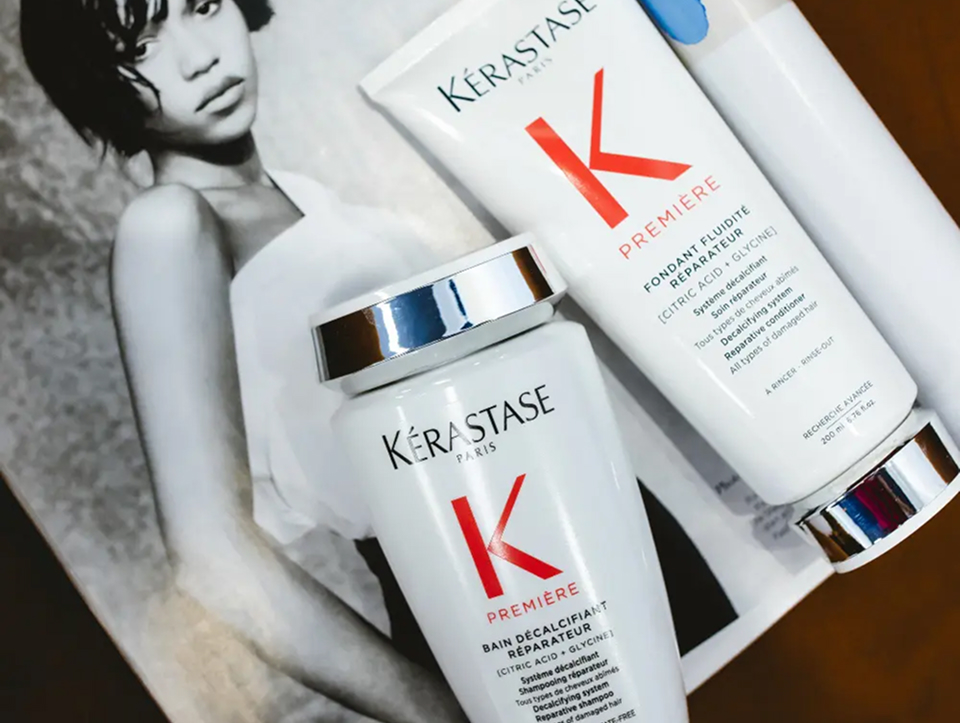You want hair that’s smooth, manageable, and straight without the daily hassle of heat styling. A chemical hair relaxer can help transform curly, wavy, or textured hair into sleek, straight strands that are easier to style and maintain.
Whether you’re aiming for a polished professional look or a long-lasting, manageable style, relaxers are a popular choice.
However, with numerous types, chemicals, and techniques available, it’s essential to understand how relaxers work, which type is best suited for your hair, and how to maintain its health throughout the process.
Everything You Need to Know About Chemical Hair Relaxers
1. How Chemical Hair Relaxers Work
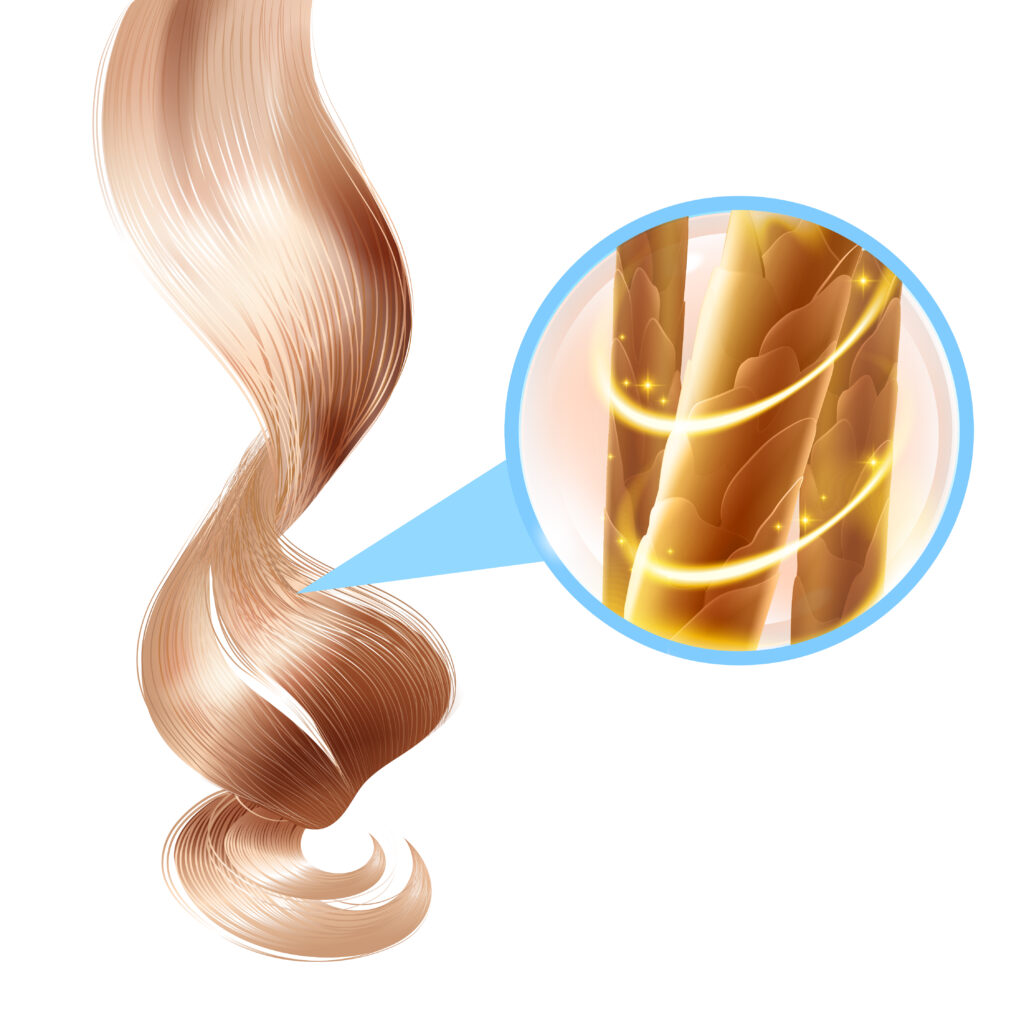
Chemical relaxers straighten your hair by altering its molecular structure. Here’s what happens:
- They break down hydrogen and disulfide bonds in the hair cortex.
- This allows the hair to be reshaped from curly to straight.
- After neutralizing, the bonds reset, locking in the new shape.
✨ Tip: Always follow manufacturer instructions and consider professional application to avoid overprocessing.
2. Types of Chemical Hair Relaxers
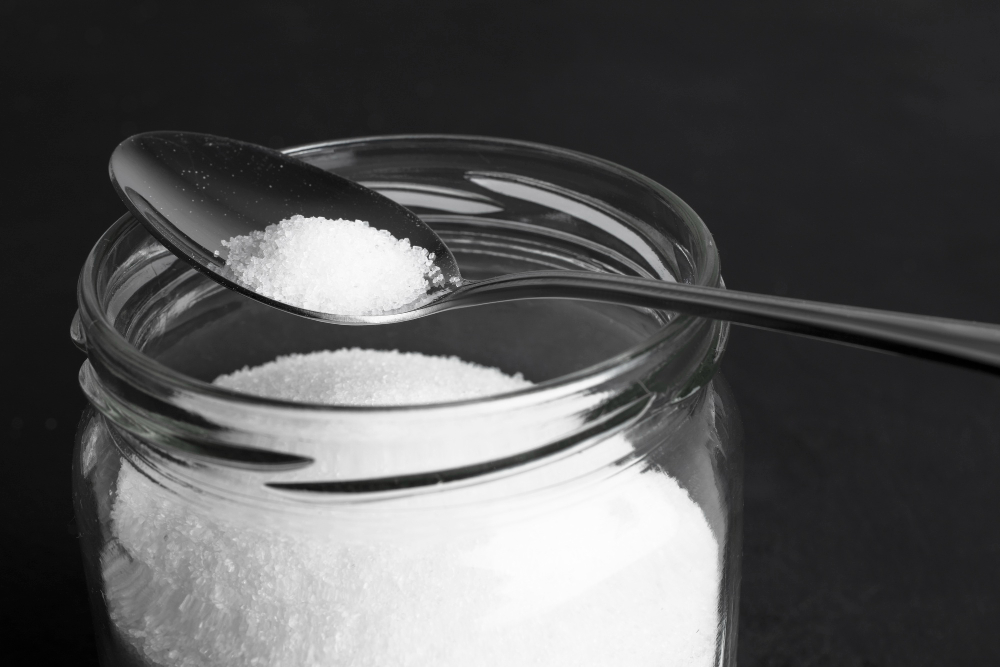
Knowing your hair type and the right relaxer is essential for healthy, sleek results. Choosing the wrong relaxer can lead to breakage or uneven straightening. Here’s a deeper look:
| Type | Active Ingredient | Best For | Notes & Tips |
|---|---|---|---|
| Lye Relaxers | Sodium Hydroxide | Thick, coarse, or tightly curled hair | Fast-acting, highly effective. Use a protective cream on the scalp and avoid overlapping previously relaxed hair. More info: Sensitive Scalp Guide |
| No-Lye Relaxers | Calcium Hydroxide / Guanidine Carbonate | Fine, color-treated, or wavy hair | Gentler on the scalp but may leave a slight wave. Always neutralize thoroughly to avoid dryness. Learn more about hair porosity: High and Low Porosity Hair. |
| Thio Relaxers | Ammonium Thioglycolate | Color-treated, fragile, or fine hair | Requires a neutralizer and careful timing. Perfect if you want smooth hair without heavy chemicals. |
| Specialty / Smoothing Relaxers | Keratin or smoothing agents | Wavy or slightly curly hair | Often combined with treatments like a Brazilian Blowout for extra shine and manageability. Great for those seeking sleek, salon-finished hair. |
✨Tips:
- Deep condition your hair before and after relaxing (learn more here) to keep strands strong and hydrated.
- Always match your relaxer type to your hair texture and porosity.
- Avoid relaxing hair that has been recently colored or chemically treated unless the type of relaxer used is compatible.
📝 Learn more about Nanoplastia and how it compares to other treatments
3. Professional Application & Tips
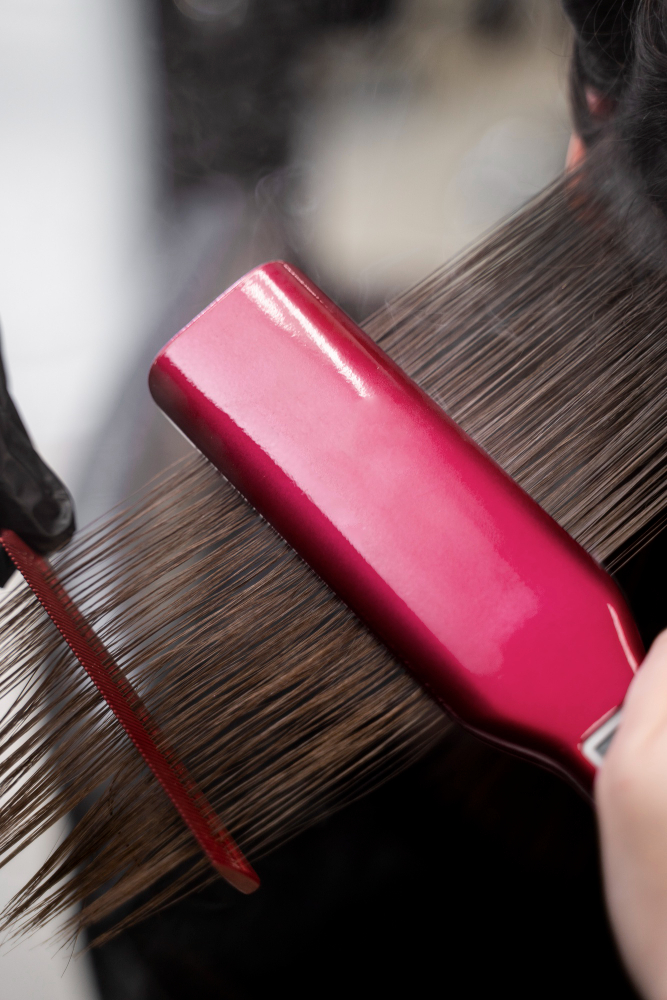
Applying a chemical hair relaxer correctly is crucial to avoid damage and achieve the smooth results you want. Here’s a comprehensive guide:
- Consultation First: Your stylist should assess your hair type, health, and previous chemical treatments. A consultation ensures the correct relaxer strength and technique.
- Protect the Scalp: Apply petroleum jelly or protective creams to your hairline, ears, and neck. This prevents irritation and chemical burns.
- Sectioning Hair: Divide your hair into sections to ensure even distribution of the product. Start at the back and work forward.
- Application Technique: Apply the relaxer evenly, avoiding previously relaxed ends unless doing a touch-up. Use the proper combing technique to work the chemical through the hair (learn about proper combing and spreading).
- Processing Time: Follow the recommended time on the product packaging strictly. Overprocessing can cause severe damage.
- Neutralization: Use a neutralizer to halt the chemical process and maintain the new hair shape. This step is crucial, especially for the relaxers.
- Aftercare: Rinse thoroughly, deep condition, and avoid heat styling for at least 24 hours. Your hair will be stronger and more manageable if you stick to post-relaxer care routines (Glass Hair Look guide).
✨Extra tips:
- Avoid shampooing 24–48 hours before relaxing to protect natural oils.
- For extra shine and smoothness, consider pairing your relaxer with treatments like keratin (learn more here) or a Brazilian Blowout (discover its benefits here).
4. Safety & Risks
Chemical relaxers are safe when used correctly, but caution is key:
- Avoid overlapping with previously relaxed hair
- Never exceed recommended processing times
- Watch for scalp irritation or hair breakage
✨Quick tip: Consider deep conditioning treatments to replenish moisture and strengthen your hair.
5. Aftercare & Maintenance
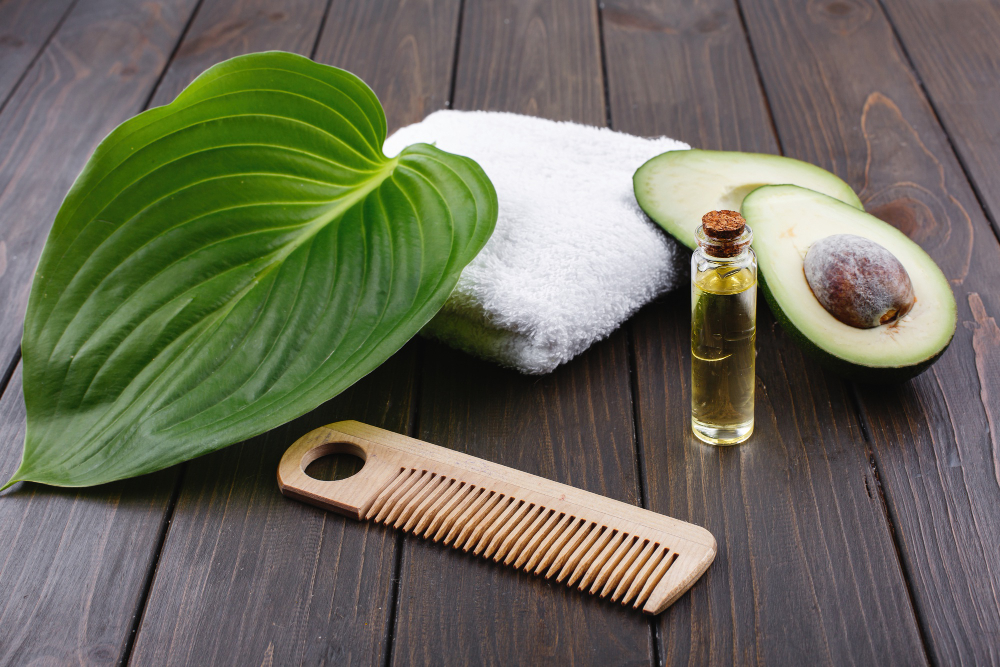
Maintaining your relaxed hair is essential for longevity:
- Moisturize regularly with oils or leave-in treatments
- Use sulfate-free shampoos to prevent dryness
- Limit heat styling to reduce breakage
- Schedule touch-ups every 6–8 weeks
- Protect your hair from sun, saltwater, and chlorine to maintain smoothness—check out our Beach Hair Care Tips for guidance
6. Results: What to Expect
- Sleek, manageable, straight hair
- Reduced frizz and easier styling
- Long-lasting results when correctly cared for
What Can Go Wrong Without Proper Knowledge
Relaxers can be potent, but if misused, they can cause:
- Hair breakage
- Uneven results or over-processed hair
- Watch for scalp irritation, breakage, or hair thinning. If you notice excessive hair loss, learn more about what hair loss is and how to prevent it.
Many people are unsure which relaxer suits their hair type, how to protect their scalp, or what the necessary aftercare is to maintain healthy strands. That’s where proper guidance becomes essential.
👉 Also learn more about the Brazilian Botox and Rebond differences here.
Ready for Silky, Straight Hair? Visit Haste Urban Hair Spa!
Experience professional chemical hair relaxer treatments that keep your hair healthy, shiny, and manageable. Book your appointment today for expert guidance, top-quality products, and luxurious hair care: Book Now.
FAQ
What is a chemical hair relaxer?
A chemical hair relaxer is a treatment that permanently straightens curly or wavy hair by altering the hair’s internal bonds. It makes hair smoother and easier to manage.
How do chemical hair relaxers work?
Relaxers break down specific bonds in the hair shaft, allowing the hair to be reshaped into a straighter appearance. Once neutralized, the new shape is set.
Is chemical hair relaxing safe?
Yes, if applied correctly and with proper scalp protection. Always follow instructions and consider professional services.
What protects the scalp during relaxing?
Petroleum jelly or specialized protective creams applied around the hairline, ears, and scalp prevent chemical irritation.
How long does a relaxer last?
Typically 6–8 weeks, depending on hair growth and aftercare. Touch-ups maintain straightness.

